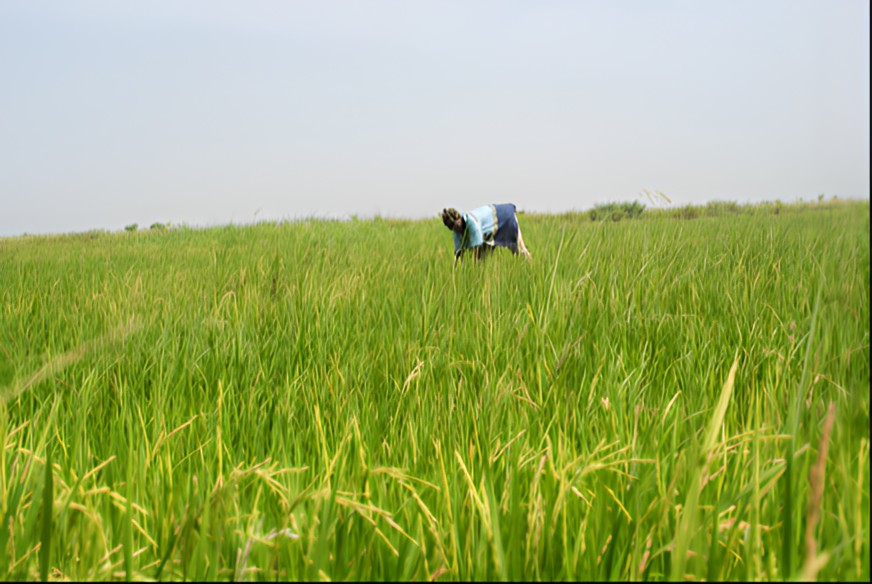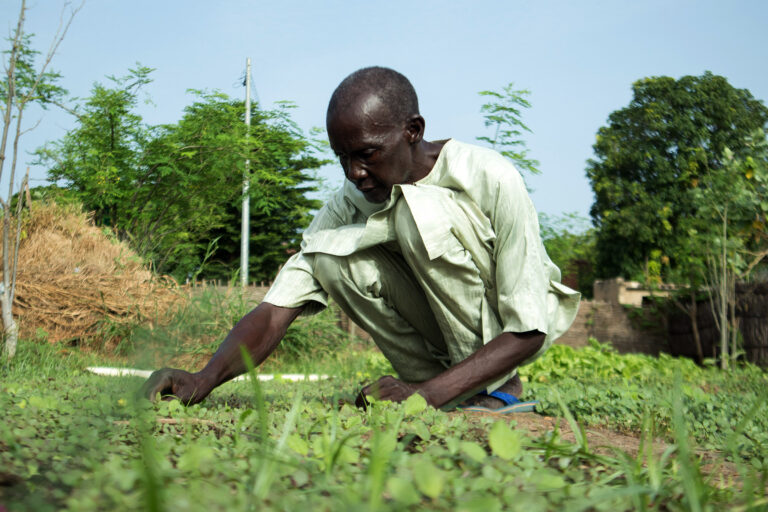Coordination of pluralistic agriculture extension and advisory services in Senegal
This post was written by Winrock International’s Soniia David, project director of the USAID Enabling Farmers for Agricultural Transition project with Alphousseyni Diallo, EFAT Senegal country director; Nar Gade Alé Diang, EFAT extension and advisory services specialist; and Assane Sow, EFAT monitoring, evaluation and learning specialist.
Agricultural extension and advisory services (EAS) provided by multiple public, private and civil society organizations is a positive trend because different types of service providers can better respond to the needs and demands of diverse producers and provide a range of services with funding from diverse sources. Such increased pluralism in the extension and advisory landscape, however, comes with challenges. The highly pluralistic EAS landscape found in most developing countries is typically uncoordinated in terms of where EAS providers operate, their interaction with each other, and the content, methods and approaches used. This often results in duplication of efforts, a lack of synergy, competition between providers and a failure to address the needs of certain producers, especially women, youth and those living in remote areas.
Not only is there a need to coordinate the activities of different EAS providers, but creating effective linkages, partnerships and collaboration between advisory actors and complementary service providers such as financial services and input suppliers is critical for ensuring that farmers have the full range of goods and services they need to enhance productivity and improve their livelihoods.
Sustainability: A challenge for EAS coordination
For the most part, EAS coordination mechanisms such as multi-stakeholder platforms and associations of service providers are driven, led and funded by external actors like governments and/or donor funded projects, raising issues of ownership and sustainability. Innovation platforms, a widely used approach for bringing together agricultural innovation actors to develop and scale innovations, pay little attention to coordinating advisory and other agricultural services delivered by these actors.

The USAID-funded Enabling Farmers for Agricultural Transformation (EFAT) project (2022-2027), implemented by Winrock, is piloting arrangements for fostering collaboration and partnerships among rural organizations in Senegal to improve the coordination and delivery of advisory and other agricultural services with an emphasis on local ownership and sustainability. EFAT catalyzes EAS delivery hubs by convening agricultural services providers from the public, private and civil society sectors to work together to resolve complex service delivery challenges for specific value chains, including irrigated rice, pearl millet, and horticulture. In 2023, EFAT supported service providers in three regions of Senegal ─ Senegal River Valley, Kaffrine and Niayes ─ to set up pilot EAS delivery hubs. Challenges the hubs are addressing include low adoption of improved practices and technologies, low number of advisory personnel, limited capacity of advisory personnel, low recovery of loans made to producer organizations and individual farmers, late delivery of loans and inputs and low involvement of women and youth in value chain activities.
Process: Developing and learning from EAS delivery hubs
Hubs working with EFAT involve a lead organization that convenes and works with four to seven other member organizations. Two hubs coordinating with EFAT are led by private firms. One is a rice processing company in the Senegal River Valley Delta, and the other provides digital and other agricultural services to farmers. A network of millet producers leads the third hub. Other organizations involved in each of the three hubs include public extension agencies like the Société d’Aménagement des Terres du Delta-SAED and Agence Nationale de Conseil Agricole et Rural-ANCAR; producer organizations; financial institutions such as La Banque Agricole; and input suppliers.
EFAT-supported EAS delivery hubs seek to improve coordination of advisory organizations and complementary service providers offering different services to ensure integrated and synchronized service provision to farmers and producer organizations. Where multiple private sector actors offering the same services are involved, EAS delivery hubs aim to regulate competition and encourage collaboration. To test the hub concept, EFAT focuses on promoting and disseminating target technologies such as climate resilient crop varieties, good agricultural practices, integrated pest management and agricultural machinery.
EFAT’s role in supporting hubs focuses on facilitation, needs assessments, capacity development, and linking hubs to other organizations to partner with and providing targeted technical support. For example, EFAT provides resources for irrigated rice demonstrations and has supplied one hub with a mechanical rice transplanter. EFAT builds evidence on best practices for setting up EAS delivery hubs through regular monitoring, including supporting hub members to monitor their activities, and conducting learning studies led by a Senegalese university to document how to organize and incentivize public, private and civil society organizations to effectively work together to provide inclusive, demand-driven advisory and complementary services to smallholder farmers.
Hub activities
Activities involved in piloting EAS delivery hubs include identifying locations and value chains and assessing the EAS landscape; selecting organizations to join hubs; organizing co-creation workshops to define hubs’ objectives, interventions, targets and activities as well as each organization’s incentives, expectations and role in the hub; conducting organizational capacity assessments of hub members; and carrying out capacity development activities and fostering linkages and partnerships between hubs and other organizations (e.g., research institutions, e-extension platforms, radio stations, and marketing firms). So far, EFAT has trained hubs member organizations on extension and advisory approaches.
Please check back at Winrock.org for future EFAT blogs covering lessons learned from implementing EAS delivery hubs in Senegal. Also, we invite you to join the EFAT-supported Global Forum for Rural Advisory Services (GFRAS) global community of practice on extension and advisory services (also termed rural advisory services) to share your experiences with extension and advisory services, and to learn more about innovative approaches, good practices and lessons learned on this topic.
To register for the EFAT/GFRAS community of practice, please click here.
Related Projects

